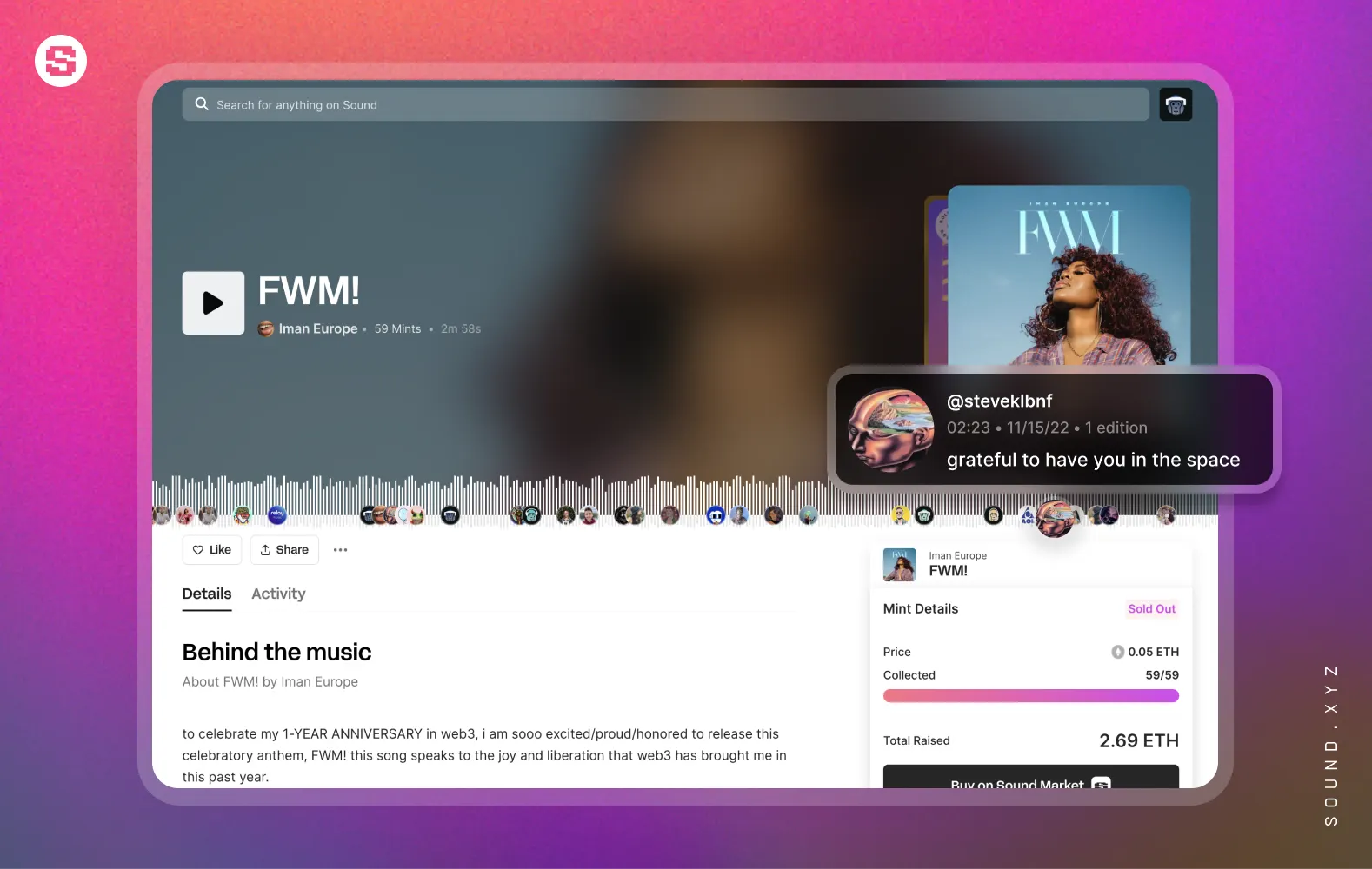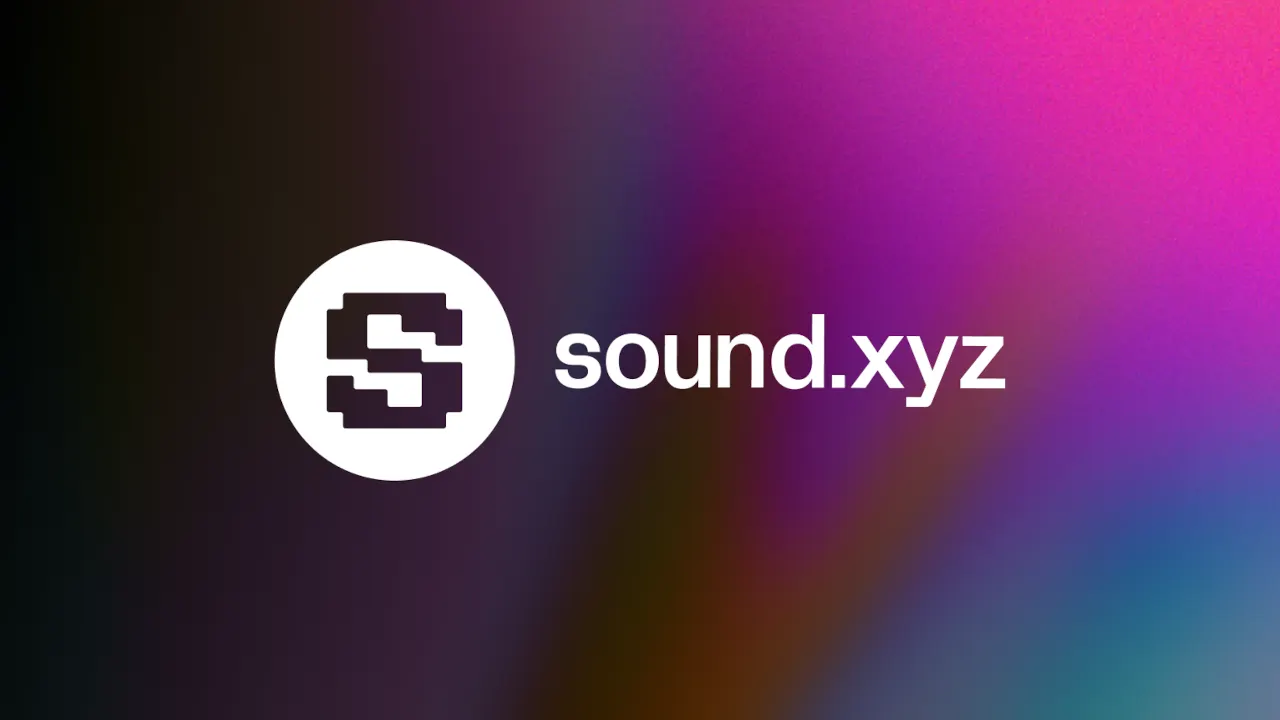On-chain music startup Sound.xyz has confirmed the public launch of its new artist-first NFT platform alongside a further $20 million in Series A funding led by Andreessen Horowitz.
Rapper and noted NFT aficionado Snoop Dogg—who has released music via Sound—also participated in the round, according to the company. OneDirection musician Ryan Tedder, who similarly released music on Sound via his Bored Brothers side project, also participated.
Further backers include music producer Tay Keith, Collab + Currency, Sound Ventures, Palm Tree Crew, Scalar Capital, and A Capital. Andreessen Horowitz also led Sound’s $5 million seed funding round announced in December 2021.
Founded in 2021, Sound allows musicians to upload their songs to the on-chain platform and sell them for whatever price they want. Over the past 12 months in closed beta, Sound has paid out $5.5 million in total to 500 artists, who have collectively released some 1,600 songs as music NFTs.
From today, any artist can now upload their music to Sound and retain 100% ownership. Sound lets artists mint NFTs on the Ethereum mainnet, as well as scaling network Optimism.
David Greenstein, co-founder of Sound.xyz, started his career in music and tech with an internship at Atlantic Records, the label behind artists like Charli XCX, 100 Gecs, and Ed Sheeran.
He told Decrypt that he has constantly heard the same questions being asked: “How do I help my artists reach as many people as possible, and how can I help my artists make money from their music?”
Greenstein believes the answer is Sound, which he hopes will become “the homepage of music discovery.”
Taking a cue from the four products Greenfield believes have most changed the way people discover music—SoundCloud, YouTube, MySpace, and TikTok—every track uploaded to Sound will be free to listen to, but fans can also “collect” it by purchasing an NFT.
Despite the tracks being free to stream, Greenfield said that there’s a number of reasons why a fan would want to purchase the song—including the idea of supporting their favorite artist or for speculation (i.e. betting that the value will rise), but also for “social status.”
“Every year, Spotify Wrapped comes out and people share their favorite songs and artists because they love to associate music with their identity,” he explained. Because purchasing Sound tracks is all done on-chain, people can prove they “discovered” an artist before they made it big.

Greenfield compared the NFTs to “digital vinyl,” with those collected tracks available to display via a public Sound library or be traded with other users.
“We're not inventing behavior that didn't exist already—we're really just trying to bring it online,” he explained. “It’s a lot more social than what’s out there at the moment.”
The tools that Sound uses are designed to be as artist-friendly as possible, with the process of uploading music and artwork similar to what already exists on Web2 platforms, alongside a few blockchain-specific steps.
According to Greenfield, the benefits of using blockchain for Sound are that it allows creators to be paid quickly and efficiently, with every global transaction logged and tracked. It also allows for payments to be split between different creators, depending on who did what to create the finished song. Sound is also billed as user-friendly, with fans able to sign up using an email address and pay for NFTs using a bank card.
“At the core of it, we want Sound to be as inclusive as possible,” said Greenfield. “It's about meeting people where they’re at. NFTs are the ‘how,’ not the ‘why.’ The ‘why’ is helping artists reach people with their music and making sure they’re paid fairly. NFTs are just how we’re doing that.”
Alongside bigger payouts for artists, Sound’s viral chart is based entirely on how users are connecting to specific songs.
“The cost of making music has never been lower, but it’s so much harder to find an audience because there’s more content than ever,” Greenfield told Decrypt. While platforms like Spotify curate their own playlists, Sound will allow users to become the tastemakers.
Greenfield went on to call TikTok’s ability to make a song go viral “genius,” but because it’s primarily a video platform, it can “cheapen the connection between artist and listener.”
“Just because someone hears your song, it doesn’t mean they know who you are. It’s the same with Spotify, where some playlists are bigger than most artists,” Greenfield explained. “It’s one of the reasons why numbers aren’t translating to ticket sales in the physical world.”
Sound will allow artists to create their own custom perks for supporters, will provide listener data at an individual level, and is currently working on a messaging system to help foster that connection between artist and audience.
“I’m really excited about what artists will be able to do when they have access to that information,” said Greenfield.
In the coming months, he expects Sound to have a song hit 1 million sales via the platform, paying out between six and seven figures worth of USD to the creator in the process, and have an artist get discovered—then break out—from Sound in the same way that Billie Eilish utilized SoundCloud back when.
“I want Sound to be where artists start their journey, where they build up an audience, and ultimately where their music is valued,” Greenfield said.

